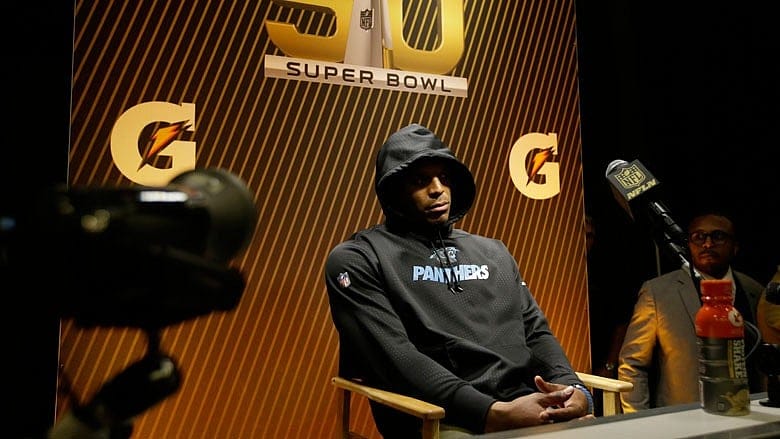Spotlight on Superman and America

Cam Newton is not your average NFL MVP quarterback. The former Heisman Trophy winner has a smile that's roped in plenty of endorsements, he's number two in NFL jersey sales for the 2015–16 season, and he has an impeccable sense of style to top it all off. Newton's dominance is unquestionable. The conversations he inspires are where things heat up and debate begins.
Sports have the unique ability to tell us about life, and football — due to its aggressive nature and widespread appeal — at times acts as a window into American life. So when it comes to the controversy, for lack of a better word, that was as much a part of Newton's season as his 50 touchdowns, I'm pushed to ask: What does this tell us about American life?

